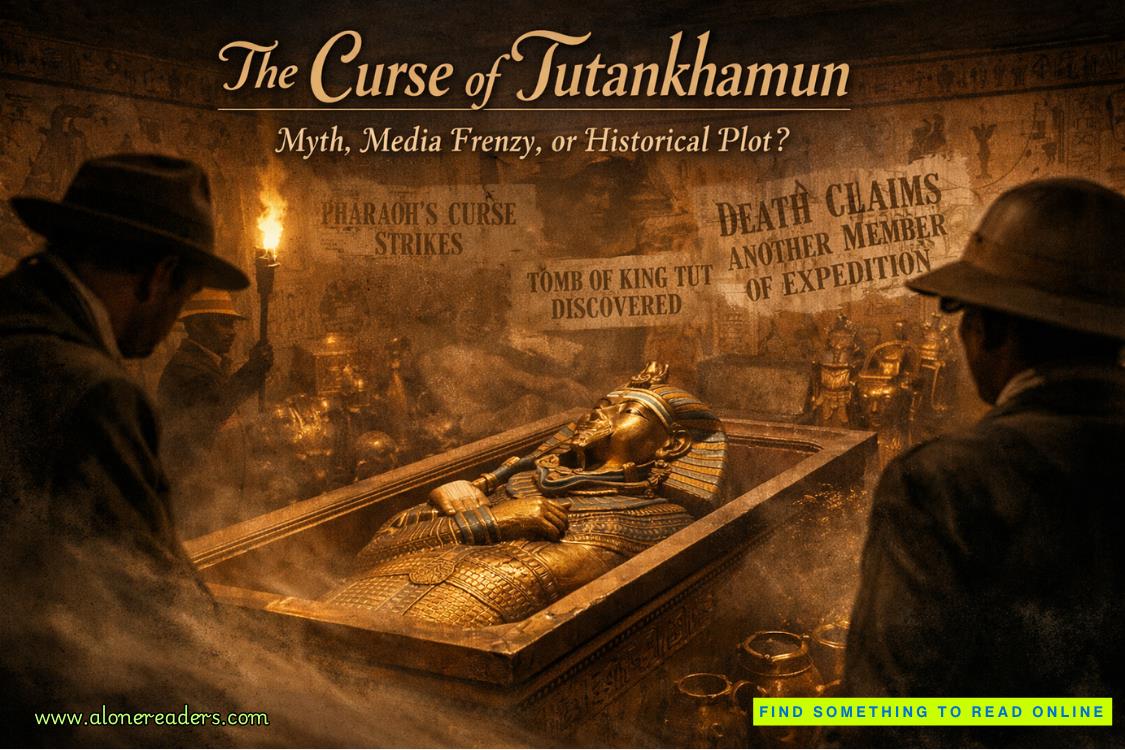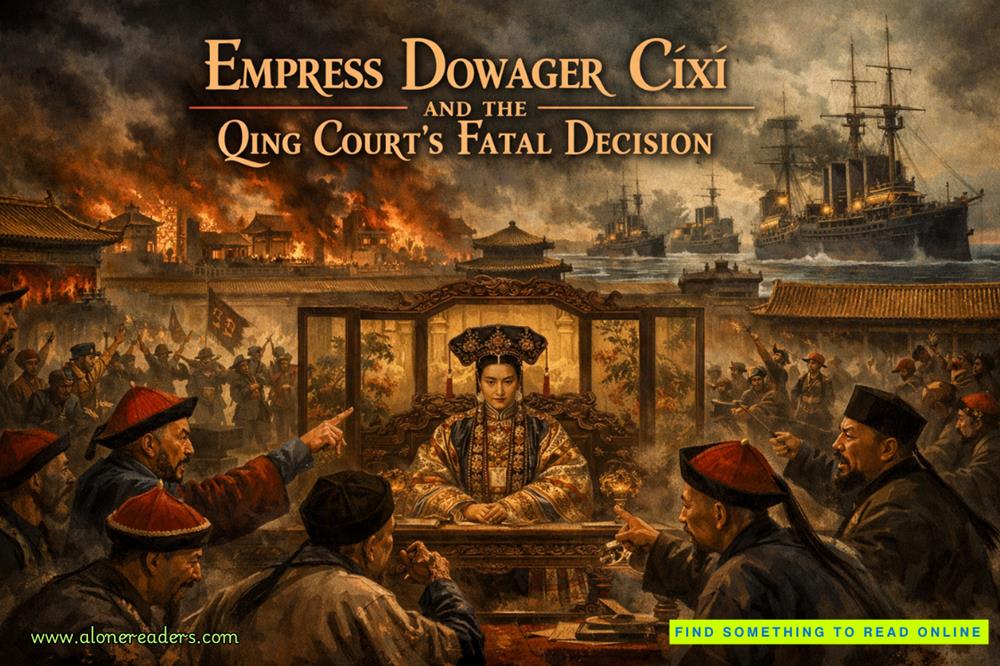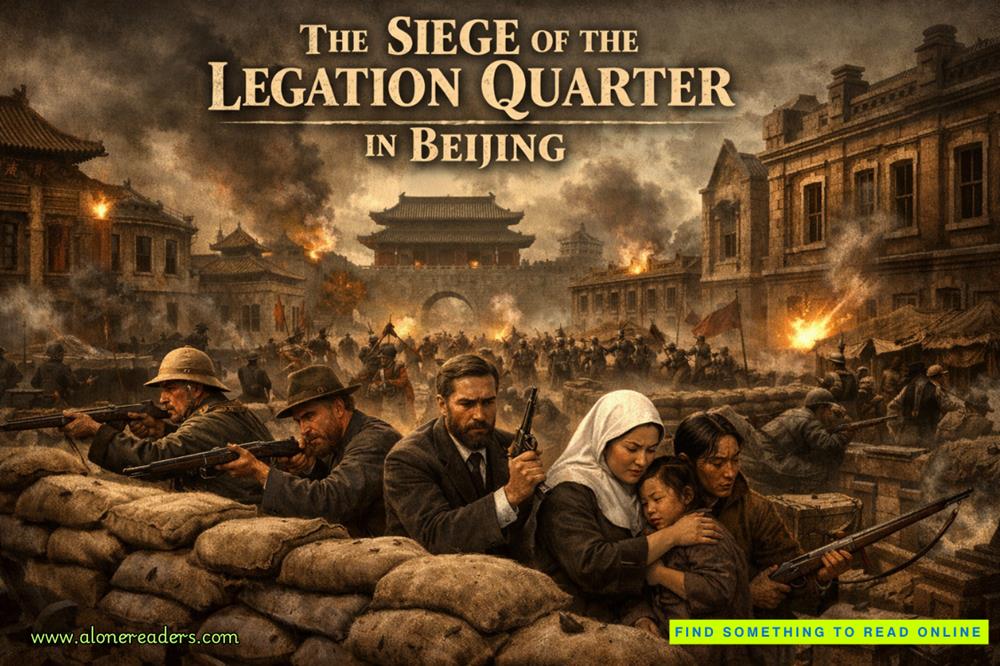“You’re sure you know what you’re doing?” Aspen asked.
I nodded. There were parts of me returning, and although on a superficial level, I found this frightening, a deeper part of me felt like I was finally coming to life, filled with a power and knowledge I could only have dreamed of as Robin.
When the water began to boil, I sprinkled in the angelica, then the silphium, followed by the licorice root, and finally a small amount of aconite. Once the water returned to a boil, I turned the heat down to medium-low.
“Now,” I said, with a clap of my hands, “we wait.”
We tried to pass the time while the herbs cooked, but the minutes seemed to crawl by. The others were able to settle into a card game, but I kept finding myself in the kitchen standing over the pot. As I watched the dark liquid boil, amber bubbles dancing and roiling, my mind drifted back to the hideous room where I’d found the relic. Why that room? What was I trying to communicate with myself? Something about that room had set off alarm bells for me when I’d walked in, but I’d been so distracted by the bottles that I hadn’t processed it. The smell of an extinguished candle. Someone had been in there, and recently. And then I saw it. I sent myself to that room, left the statue in it to make sure that I knew: Someone among us was still living by the old ways, by the left-hand path. Someone here wasn’t who they seemed.
As I looked over at the others, no one in particular jumped out at me as fitting this profile. Lexi and I had our differences, but she wasn’t a bad person. Same with Dorian. Aspen, I genuinely liked, and although she clung to some antiquated theories when it came to botany, she didn’t strike me as malevolent in the slightest. Finn was perhaps the most complicated of the bunch. He’d hated me when I was Isabelle. He admitted as much, and he was also the main architect of my memory retrieval, so he had to be pretty chummy with someone up top. Still, picturing him as some kind of deranged warlock was a stretch.
Eventually the timer went off, and we all gathered in the kitchen as I poured the caramel-colored liquid into a cup. I knewI would need to take my journey alone, and so with some prodding, they left me by myself in the garden house. I sat in a chair facing the window, the steam from the sweet-smelling potion wafting up and filling my nostrils with a heady, woodsy aroma.
I sipped the tea and closed my eyes, trying to relax my mind. The memories were in there somewhere. I just had to find them. I began taking slow, deep breaths. This would stimulate the parasympathetic nervous system, triggering the vagus nerve, lowering my blood pressure, decreasing my heart rate, and providing a general sense of calm and well-being. I continued like that for some time, first with my eyes open and staring out at the garden, and then with my eyes closed. At some point I reached a state where alpha waves began to predominate. The fact that I knew anything about these physiological processes meant that Robin was really beginning to fade now. Because I was pretty sure she didn’t know anything about alpha waves.
Soon time became malleable and I was outside walking toward the woods. Above me the moon shone bright and my brain began to tingle. My feet felt like salamanders licked clean by the dewy grass.
When had I slipped off my shoes?
As I walked the winding forest paths, a kind of fire in my abdomen became increasingly intense. Soon I was in the woods somewhere dark, sweating and shaking. Suddenly my head spun and a pain in my side tore through me, reached a crescendo, and then abruptly stopped.
There was something like a crack and a fracture deep inside my mind. I could actually hear it, as if a physical barrier had been broken. I hurtled over it and into another time, that other me, no longer liminal, but fully myself once again. My body shook asI stared at my hands—not mine, and yet mine, Isabelle’s—and I could feel it inside me now, everything I’d been suppressing.
I’m out near the fence now, near the yew tree, its great spidery limbs reaching out like arboreal claws. I can feel the grass between my toes as slowly I walk toward that gargantuan fence. My fingers slide between the links, grasping at the metal, and as I stare up and up and up, I know that it goes far beyond what I can actually see. Almost like a world laid on top of our own. On the other side of the fence, I think I can see something moving, creaking and lumbering on ancient, splintered legs, appendages like so much rot.
In the moonlight, I can make out something else moving, out near that singular red X, and I begin to remember. Sometimes they get through, slipping through cracks between our world and theirs, crawling up from the depths of hell. It isn’t just those squashed pink creatures I witnessed down below. There are more. So many more. A legion of them. “It is one, but it’s also legion,” Charles had said. The skeletons in the great hall. Finn had called them a collection.
And now I understand. On a deep, visceral level, I finally understand. If these things get through, if they really get through, it will be the end of us all.
“It wasn’t the harvest,” a voice beside me whispers.
Flinching, I turn and see someone standing next to me. It’s me, only it isn’t. Isabelle, her hair swept back in an intricate braid, gives me a slow smile. Her dark eyes are smoky and lined with kohl. She also peers through the fence.
“It wasn’t the harvest,” she says. “It’s them.”
“You’re not here,” I say. “I’m dreaming.”
“I’m as here as you are,” she snaps. “And you need to start listening to me. We don’t have long like this. Soon there will be only one of us.”
“What do you mean?” I ask, stealing tentative glances over at her.
“Charlie was giving them the harvest to buy time, to stop them from taking what they really want.”
“What do they want?”
“Those,” she says, pointing to the tessellating darkness, to the creatures moving silently between the trees.
“What are they?”
“The physical manifestations, the Terrible Ones.”
I draw back. “Why do they want them?”
“To control, to destroy, to use them as weapons. But they don’t understand. There are so many of them now. Too many. Because we disrupted the cycle. You know all this. Think. Remember.”
It’s all tumbling onto me, through me, in relentless waves—half remembered, half deduced. The black rains, the silphium, Pliny the Elder. But those black rains weren’t just confined to antiquity, were they? No, they’d come again in 1816, in the Year Without Summer when a distant volcano all the way in Indonesia had disrupted the weather patterns, had brought black rains as far away as France. That was 1816, and a few years later Hildegard was founded. That was no coincidence. The black rains brought forth the silphium—the hoopoe’s blood—and the hoopoe’s blood brought forth the monsters.
“They need the silphium to live, don’t they?”















